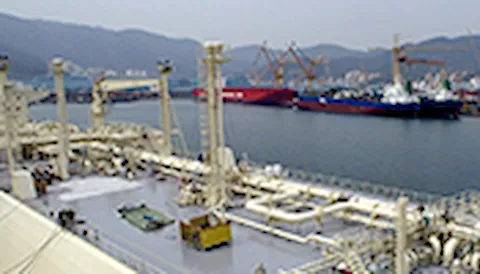Maritime Carbon Footprint and Life Cycle Assessment
Understand and document the carbon footprint and environmental impact of your assets, technology, or operations throughout the value chain.
Maritime Carbon Footprint and Life Cycle Assessment
Stakeholders in the shipping industry are demanding a holistic, fact-based approach to climate and sustainability. Life-cycle accountability and being able to understand and quantify business-related emissions are key.
A credible life cycle assessment (LCA) or carbon footprint calculation from DNV can provide valuable insights and documentation of emissions associated with all life cycle phases of an asset or product.
Following the international ISO 14040 and 14044 standards for conducting LCA studies, combined with recognized state-of-the-art LCA software, industry insights and deep technical domain knowledge, we provide you, your stakeholders, and customers a better understanding of the environmental impacts from cradle to grave.
Life cycle studies can be carried out for a variety of purposes. Our services range from streamlined analyses and carbon footprint assessments to full-fledged LCAs from cradle to grave. Many customers also want to compare concepts, technologies or use cases in terms of emissions. Disruption of existing logistics or operations can be investigated, and carbon inventories or emissions can be quantified.
Key questions in determining the carbon footprint – from the extraction of raw materials to recycling – are:
- What is the life cycle emissions of an alternative fuel? Are they better than fossil fuel?
- In terms of the carbon footprint, should a newbuilding or conversion be chosen?
- What are the benefits of one innovative technology in terms of emissions reduction?
- Which yard or design is better in terms of carbon footprint?
Depending on your needs and sustainability goals, we can adapt the scope of the LCA accordingly, always providing full transparency and avoiding black box processes.
Benefits of using DNV for maritime LCA or carbon footprint assessments:
- Input for the decision-making processes about improving sustainability
- Reliable demonstration of compliance and transparency
- Increased brand value towards customers, financial institutions, or governments
- Future-proof your organization by incorporating a life cycle perspective or maritime GHG accounting
- Maritime domain knowledge across shipping segments and topics combined with LCA competence




